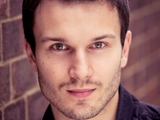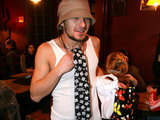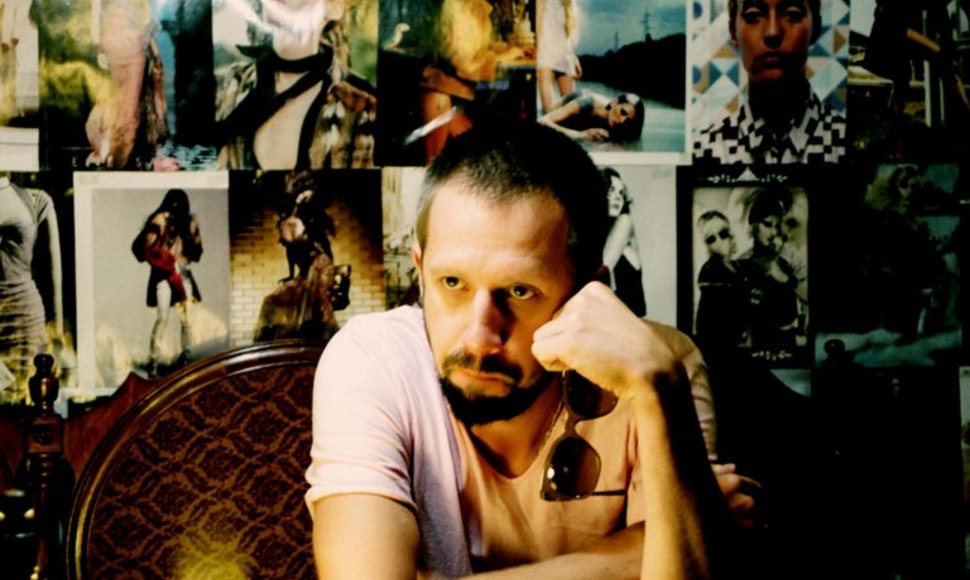Singer-producer Linas Adomaitis and two of his colleagues Vaidas Baumila and Tomas Krivickas-Psichas produced a song titled “Alpha. Alps. Allegory” that doesn't cite any names in the lyrics, but is quite straightforward in its reference to certain events.
“We won't deny it, the song was inspired by true events. We couldn't believe that the country that nurtured Mozzart, Strauss and many other outstanding personalities, could be so thick and heartless,” the singers state in their announcement.
On 13 January, 1991, following Lithuania's declaration of independence from the Soviet Union, the Soviet leadership sent tanks to Vilnius, aiming to take control of the Parliament and key media
 |
| Adamo Hillso nuotr./Vaidas Baumila |
outlets. Many Lithuanians went barehanded against the tanks to defend their newly-proclaimed statehood. 14 people died, some 600 were injured. At the time, Golovatov was head of the special force squad that was tasked with storming the TV tower and national TV and radio offices. Criminal charges have been brought against him in Lithuania.
Last July, he was arrested in an airport in Austria, but was soon released. According to Austrian officials, warrant that Lithuania issued regarding Golovatov's extradition was not in order. Many Lithuanians felt resentful about Austria's actions.
“Of course, it has been awhile since Russian tanks drove on their streets, since trained soldiers were firing at their mothers and sisters. They don't remember that. They forgot what it means to erect barricades in the streets. Bonfires at night. All they care about now is cheap gas. It's always more pleasant to be friends with the rich and the powerful,” Vaidas Baumila said.
 |
|
Viganto Ovadnevo nuotr./Tomas Krivickas-Psichas |
Tomas Krivickas-Psichas, who now lives in the Netherlands, joked that his vocal in the song sounded similar to “Voice of America” during the Soviet times, except that now it comes not from across the Atlantic, but from the “allegedly free Europe.”
“Let's not forget that we, our brothers and fathers, stood in the Baltic Way, were on watch in Stitkūnai and Juragiai, crowded in the tiny Kaunas television courtyard and did not complain in stuffed trolleybuses when gas stations had no petrol to sell,” Krivickas said.













